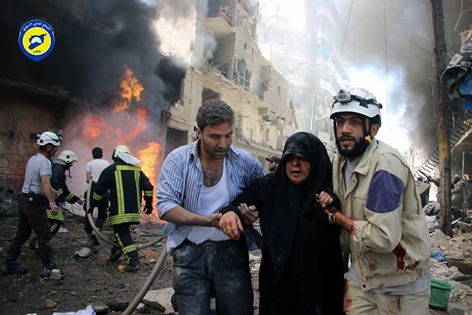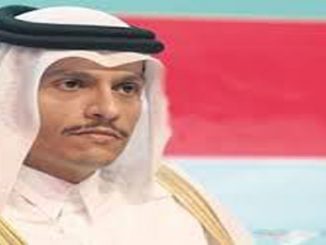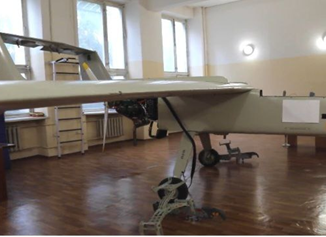
The United Nations said on Tuesday that Russia’s plan for a ceasefire will not mean any supplies get into besieged eastern Aleppo because Russia and Syria have not yet given guarantees of safety for aid workers.
Assad regime, backed by Russia, said on September 22 it was starting a new wide offensive to recapture the rebel-held parts of Aleppo after a week-long ceasefire was declared officially over on 19 September.
Since 19 September, more than 800 civilians were killed and more than 2000 injured in rebel-held areas of Aleppo province, including the besieged eastern part of the city, Civil defense workers said.
“We need assurances from all parties to the conflict, not just a unilateral announcement that this will happen. We need everybody to give us those assurances before it is immediately useful for us to do anything meaningful,” U.N. spokesman Jens Laerke said.
Assad regime would also need to overturn its decision last week to refuse to allow aid into the eastern part of the city, where the U.N. estimates 275,000 civilians and 8,000 rebel fighters are trapped.
The International Committee of the Red Cross said it was still unclear how much time would be needed to get security guarantees from all sides, including from rebel fighters.
Robert Mardini, the ICRC’s regional director for the Near and Middle East said: “Our estimate today is that there are close to 50 groups inside eastern Aleppo, it is not just about the Russian and Syrian government,” he told Reuters.
A UN convoy carrying aids to Aleppo was targeted last month, destroying te whole convoy and killing at least 20 civilians.
A truce in Aleppo
The Russian Defence Ministry said on Monday. that Russian and Assad regime’s forces will pause attacks on Aleppo for eight hours on Thursday to allow civilians and rebels to leave the city.
The pause is intended “first and foremost so that civilians can move freely, for the evacuation of the sick and wounded, and also for the removal of rebels,” he said.
“On Oct. 20 from 0800 (1 a.m. ET) until 1600, a humanitarian pause will be implemented in the area of Aleppo. For that period, Russia’s air force and Syrian government forces will halt air strikes and firing from other weapons,” he said.
The UN welcomed the declaration but said at least 12 hours will be needed for that to happen.
“Any lessening of the violence, lessening of the fighting, any pause that’s actually implemented, would be very much welcome,” U.N. spokesman Stephane Dujarric told reporters.
“We will use whatever pause we have to do whatever we can. Obviously there is a need for a longer pause in order to get (aid) trucks in,” he said.
Russia’s declaration came on the same day that 14 members of the same family were killed by its air force, raising the total death toll to more than 47 in the last 24 hours.
Members of the Syrian Civil Defence, a search and rescue group also known as the White Helmets that operates in rebel-held areas across the country, identified the jets as Russian. The attack hit Aleppo’s al-Marjah area.
The White Helmets said they are searching for more than a dozen people trapped under the rubble.
“A new massacre happened this morning when Russian warplanes bombed the Marjeh neighborhood killing 14 people from the same family, most of them women and children,” Ibrahim Abu Leith, Aleppo-based spokesman for the White Helmets, said.
The Assad regime forces, backed by Russian air power, Iranian ground forces and Shi’ite militia fighters from Iran, Iraq, and Lebanon, has been tightening its grip on rebel-held districts of Aleppo this year, and this summer achieved a long-held goal of fully encircling the area.
Recovering full control of the rebels’ last significant urban area would be the most important victory of the war so far for Assad, strengthening his control over Syria’s most populous and strategically important regions.



